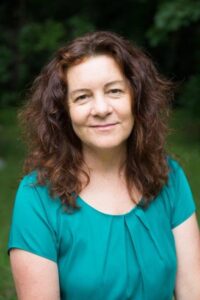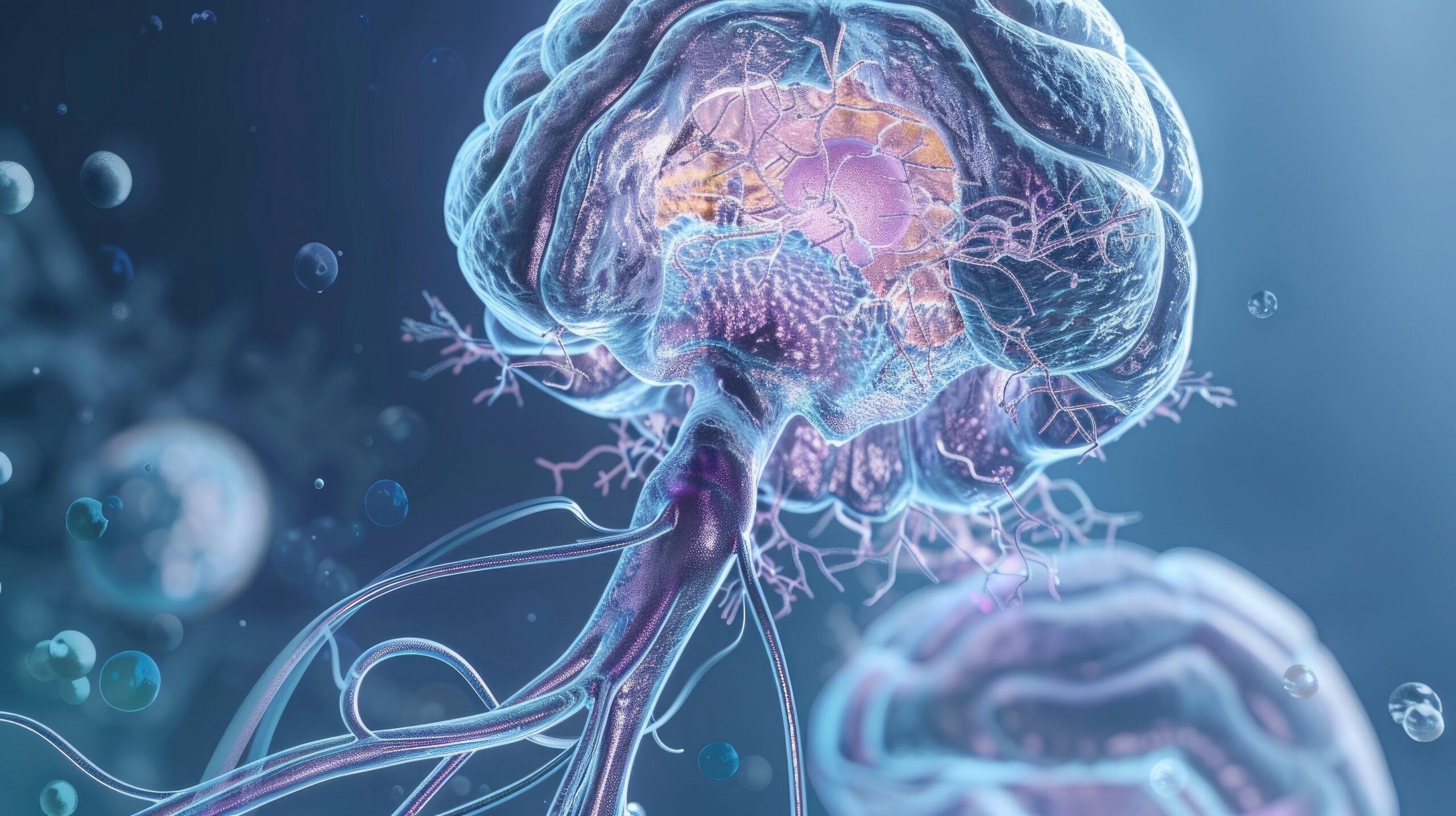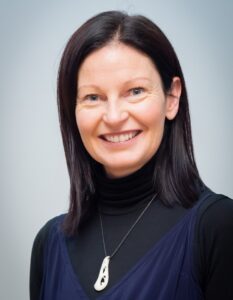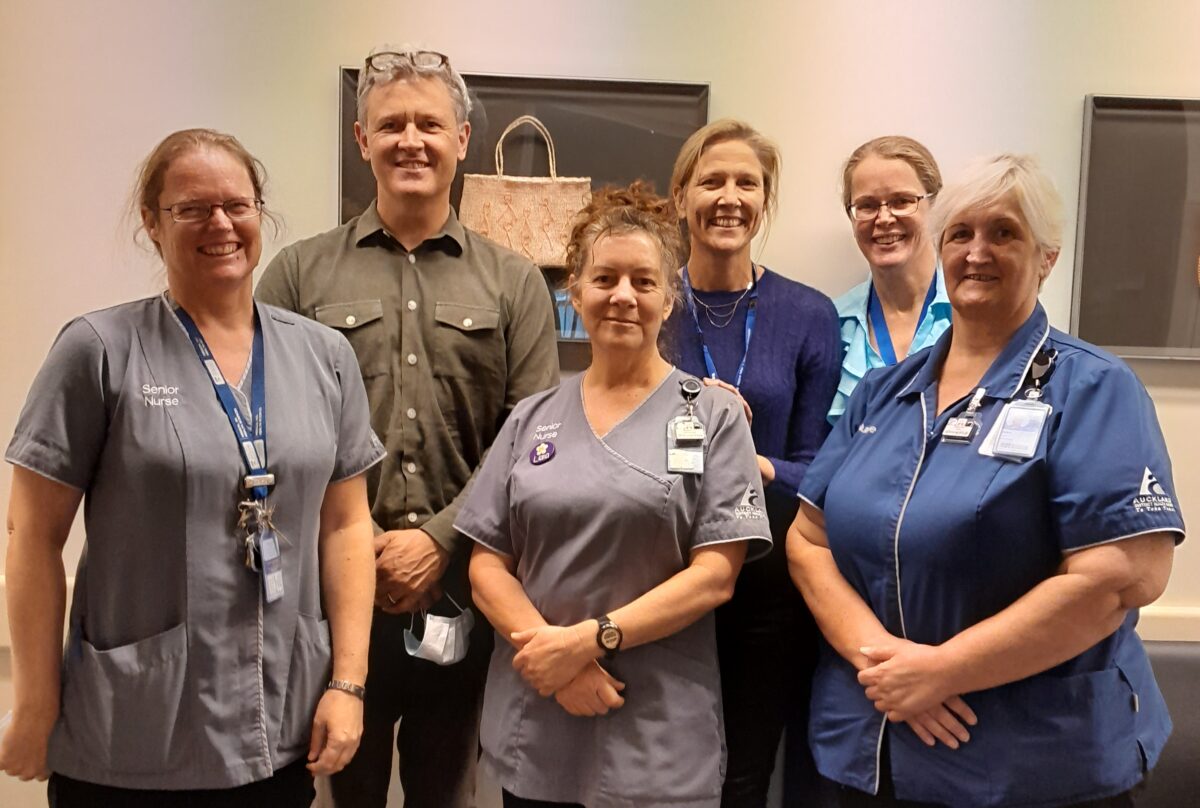|
One of the unexpected benefits of attending the European Neuroendocrine Tumor Society (ENETS) annual conference in Vienna recently was realising that — for a little country at the bottom of the world — we are right up there in giving excellent care to our patients. This makes me proud and to want to continue to do my best within the dedicated team I am part of at Auckland Hospital. The ENETS event, from March 13 to 15, attracted more than 1500 people from more than 60 countries. I, along with endocrinologist Veronica Boyle, were the only New Zealand representatives. It was a wonderful opportunity to mix, mingle and learn from some of the brightest and best in the world. Presentations included the latest in research and clinical trials and exposure to this vast spectrum of knowledge was inspiring and invigorating.  A highlight for me was the nursing and dietitian symposium. It was interesting to hear how nurses in the United Kingdom (UK) are navigating liver transplants for patients with liver metastases. This is something I have not yet come across in my role but it is likely we will be offering more patients this option in the future in in New Zealand.
My impression was that it will require a high level of skill and wraparound care to support patients who may be contemplating a transplant. NET patients are often very well informed, and I will now feel more confident if they ask about this as a treatment option. Another interesting presentation was about online support groups for patients. As the NETs group of cancers are considered uncommon, symptoms (such as profuse and frequent diarrhoea) can be very debilitating, and diagnosis is often protracted. This means patients can feel very alone and misunderstood. The UK-based online support service for those with rare diseases, Rare Minds, is a professionally facilitated counselling service which runs over six sessions, covering different topics and giving time for participants to share their experiences. Feedback has been overhwemingly positive and has got me thinking about ways to better support our patients here in New Zealand. Impact of global eventsAs Auckland Hospital is currently the only publicly-funded centre providing peptide receptor radionuclide therapy (PRRT) — a targeted form of radiation therapy — for NET patients in New Zealand, I was grateful that a significant portion of the conference was dedicated to PRRT. PRRT — which has only been available in New Zealand since 2021 — delivers targeted, high-dose radiation to the neuroendocrine cancer cells. Previously, patients needed to travel to Melbourne for treatment.
These conference sessions helped consolidate my knowledge, reinforcing the need to be vigilant for bone marrow toxicities and other effects. It seems New Zealand is not alone in facing some of the challenges and barriers to administering PRRT. One, for example, is the impact of geo-political events on the procurement of lutetium, a radioactive substance required for the treatment.  One of our main suppliers is based in Israel and when the Gaza conflict began last year, we needed to quickly source an alternative. So far, they have been able to continue supply but we know this could change at any moment. Role of the nurse specialistSometimes, the role of nurse specialists is not widely understood. We are many things. We are like project managers. We have oversight of patient care and we troubleshoot – we are the glue that holds everything together. From the moment a person is diagnosed with NETs, we become their point of contact. We coordinate their cancer treatment with other services they may need, such as surgical. When patients need help with anything we try to be there for them.
To ensure those people who need PRRT access it, we liaise with colleagues all over New Zealand, building relationships with other nursing teams and those people in their care who may be coming to us for that specialised treatment. It can be emotionally tough work –- we get to know our patients really well and often their families, too. When you’re overwhelmed as a patient and struggling, and you don’t know who to call -– call us. In a health system that is fragmented and overworked, it can be pretty helpful to be able to talk to an actual human being. In Vienna, the opportunity for networking was invaluable as it is so rare to have face-to-face conversations with colleagues from all over the world. As a result of attending this conference, I will join the nursing section of ENETS and look forward to ongoing collaboration and building of collegial relationships internationally. Keen to share what I’ve learnedAnother benefit is that I now have online access to recordings of all the sessions. This means that a huge amount of up-to-date information is at my fingertips which I can refer to as I wish. I have already done a brief presentation to my Auckland NET colleagues and intend to utilise these resources to continue to share what I have learned by doing mini teaching sessions.
My next topic is about patients with gastrointestinal NETS having a less diverse microbiome than controls – isn’t that interesting? I did notice at the conference, however, the absence of the patient voice, and almost no mention was made of equity. Again, acknowledging that we have a long way to go, I think New Zealand is actually at the forefront of some of these important issues. I would like to express my deep appreciation for NZNO and the Nursing Education Research Foundation (NERF) supporting my attendance at ENETS. I believe my nursing practice has been enhanced and at the end of the day, it is my patients and their families who will benefit most from that. For more information on neuroendocrine tumours go to https://www.neuroendocrinecancer.org.nz/
|
Creating neuroendocrine nurse ‘champions’ NeuroEndocrine Cancer New Zealand has just launched a new online course Living with NETs aimed at people newly diagnosed with the rare cancer, says the charity’s chief executive Michelle Sullivan. “It’s for people who have been recently diagnosed, who are struggling to get their heads around – they’ve never heard of neuroendocrine cancer, they’ve probably got metastisised cancer – they don’t know what any of the jargon means. It’s not like other cancers where you can go google it,” Sullivan told Kaitiaki Nursing New Zealand. “For this, every person’s cancer is different every person’s treatment journey is different. So they all kind of end up becoming experts in understanding what their symptoms mean. And we help them to get there,” Sullivan said. “So when they’re struggling with everything and really bewildered, this will create that cohort and community because people do really well in not feeling isolated. If you realise everybody who’s been diagnosed in the last 6-12 months is feeling exactly as bewildered as you, you don’t feel so alone.” NET nurse championsOne of the things Sullivan – along with NET nurse specialist Liana Meredith — are really keen to start are some online mini-trainings, she says: “Bite-sized information sessions to share some of the latest research and information Liana has learned from her trip.” Nurses in sectors like primary health or other areas may be working with NET patients in their area, but not know a lot about this rare cancer, Sullivan said. Only about 400 people are diagnosed each year in New Zealand. “They might not have much experience with them because pretty much no one does,” said Sullivan. “So what I think will be great, particularly for NET-interested nurses, or people who’ve got NET patients that they’re caring for, would be some online Zoom education miniseries.” Only 50 or 60 NET patients require specialist PRRT treatment in Auckland each year, depending on whether their cancer is susceptible to the treatment, and whether the timing is right. Others can be treated in their own regions through a range of options. That might include chemotherapy or monthly octreotide injections at their local GP clinic — a drug which can limit the hormones produced by the neuroendocrine tumours and help control the symptoms. So, as well as oncology nurses, nurses working in primary health, endocrinology and medical may also be caring for NET patients for the first time. NET cancer can also be tricky to diagnose, Sullivan says. Because the neuroendocrine tumours originate from hormone-producing cells, people often turn up with symptoms that look exactly like irritable bowel syndrome or menopause – hot flushes, diarrhoea or bloating.
Sullivan — who is also general manager of the Cancer Research Trust – says for a $3000 travel grant to result in a nurse specialist sharing that knowledge with colleagues and the wider nursing and professional community is a huge impact. “And if we end up with a dozen or more nurses around the country upskilling in NETs – you just can’t get better value from that.” Equity, the whole person and Māori NETs ratesOverseas, Sullivan says often the focus is on how to treat the most complicated of NET cases. “But in New Zealand I think one of the things that sets us apart is our focus on the whole person, not just the condition.” Sullivan is also part of the Commonwealth Neuroendocrine Society, which represents Canada, Australia and New Zealand – all countries with indigenous populations. She believes what is remarkable is how far ahead New Zealand is in considering equity and co-designing and developing new services. A challenge, however, is that New Zealand does not fund drugs at the same rate as other developed countries – as recent coverage of the decision to postpone its promised funding of 13 cancer drugs demonstrates. However, fortunately for those eligible NETs patients, PRRT is separately funded allowing us better access to that than many other countries, she says. “So while we are really behind in many ways in our cancer treatments, in NETs we are really up there in PRRT access, considering equity and putting the whole person and their cultural identity front and centre.” For example, when researchers were looking to set up a new database to collect information on outcomes from PRRT, Neuroendocrine Cancer NZ organised the patient consultation that lead to a dedicated Māori governance group that included Māori patients. “That process highlights how the health sector can partner with patient charities and the result is that the new database has a te ao perspective baked into it, making the result much richer for everyone.” NeuroEndocrine Cancer NZ, invites nurses around the country who may be working with NET patients for the first time to online mini-training sessions on caring for people with this rare disease. Please contact Michelle Sullivan at [email protected] if you are interested or just want to learn more about NETs. Neuroendocrine Cancer NZ’s website and public Facebook page or private patients-only Facebook page have details on upcoming events and courses.
NETs at a glanceNeuroendocrine tumours (NETs) is an umbrella term for a group of unusual and often slow-growing cancers in neuroendocrine cells. Most people, including nurses, haven’t heard of it even though it was the cancer that Steve Jobs, Aretha Franklin – and possibly late United States Supreme Court justice Ruth Ginsberg died from. As NETs nurse specialist Avril Hull wrote in Kaitiaki in 20151, the cells are commonly found in the mucosa lining the gastro-intestinal tract, the lungs and bronchi, as well as endocrine organs such as the thyroid and adrenal glands. Different neuroendrocrine cells are responsible for controlling different hormones and peptides in the body. -NeuroEndocrine Cancer NZ and Michelle Sullivan References:
|
Features
Nurse specialist wants to help other nurses caring for rare cancer patients
July 29, 2024
An Auckland nurse specialist describes her work with patients who have neuroendocrine cancer, after returning from an international conference on the rare and often slow-moving disease.



